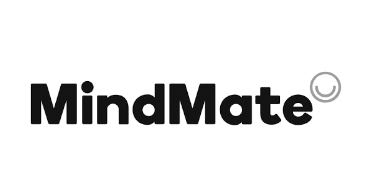ND assessment and diagnosis
This page provides information about autism and ADHD (neurodevelopmental (ND)) assessment and diagnosis for children and young people in Leeds. Autism assessments can be carried out from the age of 2 years. ADHD assessments can be completed from the age of 6 years onwards.
Unfortunately, the preschool autism assessments in Leeds have stopped until March 2024.
This is due to a national shortage of skilled professionals, meaning Leeds no longer have the correct resources to offer a safe and standardised autism assessment. The team are working to resolve this, but it’s presumed the service will remain closed until they’re able to replace the skilled professionals to deliver the service.
If your child is referred for a neurodevelopmental assessment, you have the right to choose which service provider you go to. See more information about being referred by the NHS to another contracted provider in the 0-4 years assessment section on this page.
You may notice some autistic or ADHD characteristics in your child or yourself as a young person. An individualised, needs-led approach may be enough to support a child/young person to thrive without a formal diagnosis. A needs-led approach is taken in Leeds to help and support young people. This means every child and young person can get the educational support they need whether they have a formal diagnosis or not.
This needs-led approach is supported by the Special Education Needs and Disability (SEND) Graduated Approach to support in schools. The Graduated Approach is a repeated and ongoing process, including 4 stages:
- Assessment – Your/your child’s skills will be assessed to identify strengths and challenges with the support of the Special Education Needs Coordinator (SENCo) in the setting.
- Plan – You’ll make a plan of specific support to meet your/your child’s needs and agree progress deadlines.
- Do – Provide the extra support in the plan and measure progress.
- Review – Review your/your child’s progress and decide the next steps with you and your child.
A video explaining the Graduated Approach can be found on our Education and Neurodiversity page.
If a setting has taken every possible action to identify and meet your child or young person’s needs but they’re still facing significant challenges, you may feel extra help and an assessment is needed from specialist services.
A neurodevelopmental assessment for autism and/or ADHD might be helpful at this point as it can provide a formal diagnosis to understand your child’s/your strengths, challenges and best ways to support them/yourself.
Specific things to note about the assessments:
- Children can be referred for an autism assessment in the preschool years.
- Children must be aged 6 years or over to be referred for an ADHD assessment in Leeds.
Additional funding and Education, Health and Care Plans (EHCP) are available to help support your child with or without a formal diagnosis. More information about this can be found on our Education and Neurodiversity page.
Formal diagnostic assessment
Seeking a formal diagnosis for autism and/or ADHD can feel like an overwhelming and complicated journey. Here, we’ll walk you through what’s involved and give you the information you need to make the best choices for you and your child.
Below you can download a flowchart summarising the autism and ADHD assessment pathways for 0-18 years in Leeds.

Neurodevelopmental Assessment Pathway aged 0-18
Click the button to download and view the flowchart summarising the autism and ADHD assessment pathways for children and young people aged 0-18 Leeds.
Download nowDue to high demand for Neurodevelopmental assessments, waiting times can be long. While you are on the waiting list, it is really important that you continue to seek support for your child. While a diagnosis can help you to understand your child better, support services can typically work with your child whether or not they have a diagnosis.
The earlier you get support, the more effective this usually is. There’s more information about where you can access support in the Education and Neurodiversity section.
Where does it start?
As above, if you’re worried about your child’s development, the first place to seek advice and support is your child’s education setting, e.g. nursery, school or college. Ask to speak to the Special Educational Needs Co-ordinator (SENCo) about your concerns. Even if your child’s differences are not obvious in their nursery/school/college, this is still the best place to seek early support, as settings can offer additional support to families.
Every educational setting has a responsibility to support all children/young people with their learning requirements. You can learn more about getting support from your child’s school in the education section.
If your child is 0-4 years and not in a setting, please see more information below in the Children aged 0-4 years section.
Right to choose
‘Right to choose’ is a legal framework outlining your right to choose where you receive NHS treatments and assessments. This includes private providers that already provide services to the NHS. You also have the legal right to choose a specific provider if receiving treatment from the NHS would result in you waiting longer than the maximum waiting time specified for the treatment. If you would like support with choosing an alternative provider, speak with your GP.
More information is provided in the resources below.

Private funding of your assessment
If you receive an assessment from a private provider through Right to Choose, you would not have to fund the assessment yourself. More information is available on the Your choices in the NHS web page.
Learn about assessment funding
ADHD providers
The ADHD UK website has more information on Right to Choose, including a list of providers you can request. Many of these provide both ADHD and Autism assessments.
Go to websiteRead more information about...

Children aged 0-4 years
Find out more information
School-aged children
Find out more informationWas this helpful?
MindMate will be developing the ND hub further – please let us know what you think so far to help us get this right by completing this online survey.
